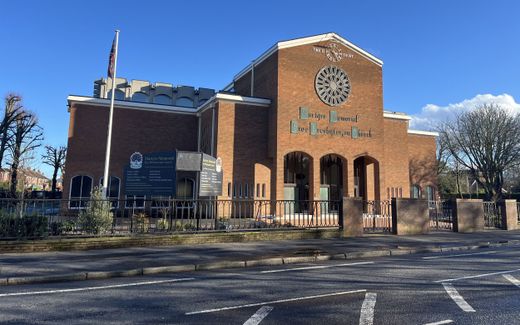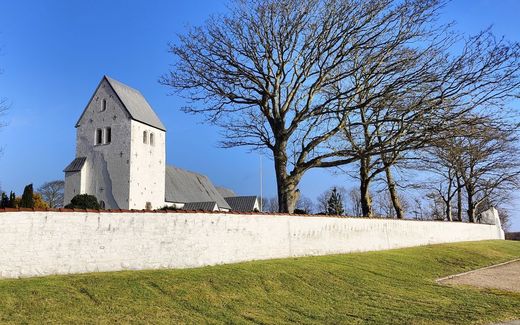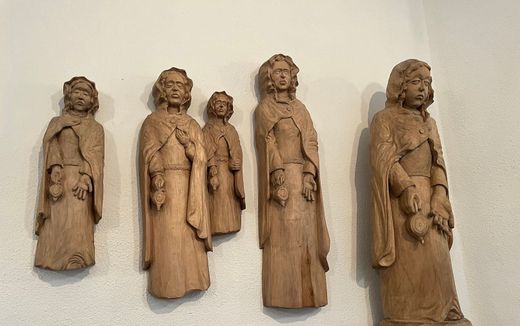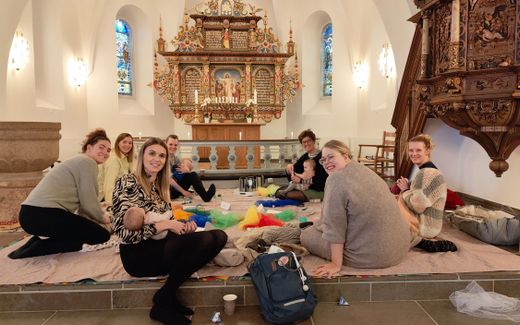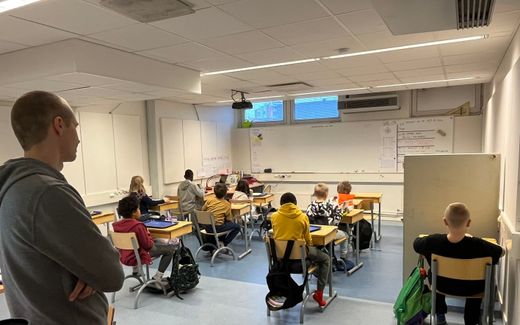Biblebelt feature from France: Why you can speak about a “spiritual warfare”
13-06-2024
Western Europe
Gerrit van Dijk, RD
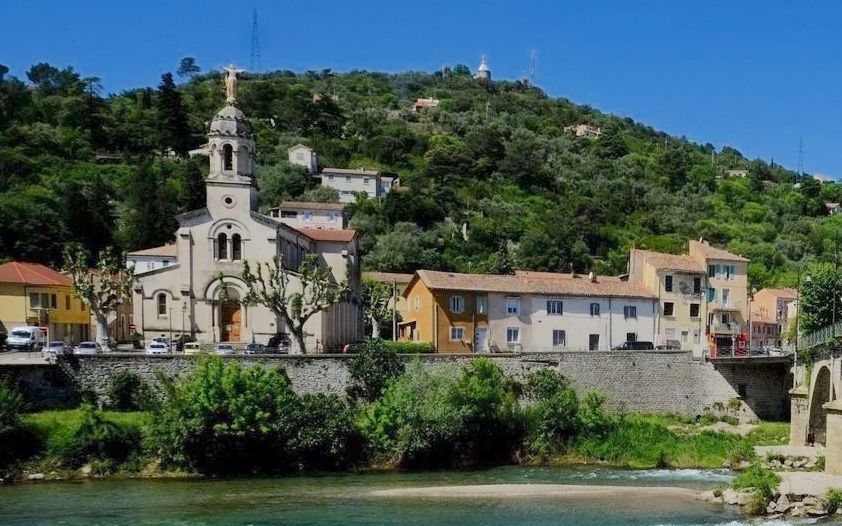
The French city Alès is located next to river Gardon. Photo Gerrit van Dijk
Western Europe
Is there a Biblebelt in France? Or is the land of “ni Dieu, ni maître” a land without a Bible?
In 1878, at least, there was a Biblebelt in France. This can be concluded from the book “Travels with a Donkey in the Cevennes” by the well-known Scottish writer Robert Louis Stevenson. In “Travels with a Donkey through the Cevennes,” Stevenson recounts the hike he made in 1878 with the donkey Modestine.
Part 6 of a series of European Biblebelts. Earlier editions were about Finland, Sweden, Germany, Denmark, and Northern Ireland
Having been brought up in Scottish Puritan piety, Stevenson identifies all sorts of similarities between the Scottish Covenanters and the French Camisards, radicalised Protestants who fought a kind of guerrilla war in the Cevennes under loud psalmody. Stevenson is shocked to see the placard ‘Collection for the Proclamation of the Faith’ and realises that in France, Roman Catholics apparently want to ‘convert’ Protestants, while in Scotland, they are collecting to fight ‘the darkness of Rome’.
Powerful Protestant faith
The Scot, travelling first through Roman Catholic Lozère, is delighted when he approaches the village of Pont-de-Montvert and sees the first ‘temple’ (Protestant church). Stevenson is in Protestant territory; crossing the river Tarn puts him in the French Biblebelt. This becomes clear when, further on, he meets a man who continuously asks only one question: ‘Do you know the Lord?’ Only when Stevenson points upwards does the man stop and say, ‘Meeting fellow believers makes me so happy inside because many are called, but few are chosen.’
Stevenson, who is familiar with the Bible, Puritan theologians and Scottish and French church history, asks the question in his book, ‘What remains of the powerful Protestant faith in 1878?’
Metaphors
What will be left of it in 2024? Is there still a Biblebelt in France? To this question, the historian Dr Patrick Cabanel, the expert on French Protestantism, replies: ‘Yes, there is a French Biblebelt. So says the authoritative French sociologist and geographer André Siegfried (1875-1959). Siegfried came from an old Protestant family and had a nose for everything Protestant. Moreover, he knew the Biblebelt of the United States, and he identified all kinds of similarities in the Cevennes, including the use of metaphors such as an identification with the people of Israel.’
Patrick Cabanel lives in Saint Julien d'Arpaon on the Chemin de Stevenson hiking trail. In his house, he can still point out the black spots resulting from the burning down of Protestant villages in 1703 during the persecutions under Louis XIV, the Sun King.
In his historical research, Patrick Cabanel can infer the arrival and spread of Protestantism from the change of names. ‘Before the Reformation, French people had typically Roman Catholic names such as Bernard, Mary, Joseph and Theresa. In deeds, those kinds of names disappear to make way for Biblical names like Gideon, Moses and Abjathar. Well-known Camisards are Abraham Mazel, Solomon Gouderc and David Mazauric. If the invocation of saints or the Virgin Mary is missing, it is an indication of Protestantism.’

Croissant
The part of France that was Protestant in the 16th century is what Patrick Cabanel and other historians call the ‘croissant réformé’ (reformed croissant); on the map, the area is shaped like a croissant with one end in La Rochelle and the other reaching as far as Geneva.
Only the bottom of the thick section of the 'Reformed croissant' remains the Cevennes, the French Biblebelt. According to Patrick Cabanel, historical French Protestantism is weak and dying; it lives only as historical consciousness and cultural Protestantism. ‘An exception is the village of Chambon-sur-Lignon,’ says Cabanel. ‘There are darbists there who call themselves “pure and strict darbists”. They drive big and expensive cars. Not typical of the French Biblebelt, but typical of this group.’
Charles Nicolas was ‘aumônier’ (hospital preacher) in Alès, the capital of the Cevennes. His wife Myriam died at the age of 43. Nicolas never remarried. He became a chaplain because of his experience of illness and dying and because he felt that a congregation could be better served by a preacher couple.
‘In France, every hospital is allowed to appoint pastors. Here in Alès, Roman Catholic, Protestant, and Muslim clergymen work together. The silence or meditation room must be multicultural, and any religious symbol is strictly forbidden. The relationship between the clergy is good; there are places where a Protestant chaplain evokes resistance,’ Rev Nicolas says during a tour of the hospital.
Persecution
The year 1629 saw the end of the religious war between Roman Catholics and Protestants. After the siege of Alès, King Louis XIII signed the ‘Peace of Alès’, also known as the ‘Edict of Grace’, on 28 June 1629. This treaty had been drawn up by Cardinal Richelieu and the Huguenot leaders and ended the religious war but not the persecution. To instil fear in the Protestants, Alès was given Fort Vauban (a prison) within the city. A large statue of Mary enthroned on the heights facing the city. This spring, the statue was shelled and damaged. ‘That will be shocking to devout Roman Catholics,’ Nicolas says. Then a mischievous smile curls around his mouth, and he continues, letting his imagination run wild: ‘The culprit is unknown. The act will probably be attributed to a ‘radicalised Protestant’, and then a new religious war may break out.’

It will not come to that. However, according to the hospital pastor emeritus, there is a spiritual war going on in the land of ‘ni Dieu, ni maître’ and ‘ni Bible’. Since France enshrined the right to abortion in the constitution in March 2024, Charles Nicolas has been wearing a black tie as a sign of mourning. ‘With that, the country has irrevocably crossed a line that is truly a Rubicon, an unstoppable development towards the abyss,’ he said. At a press conference, President Macron openly said, ‘Outside man, there is nothing.’ That is shocking. The freethinkers and neoliberals cheered, but my heart cried.’
Protestantism is prominent in Alès; this is evident in the Jean Calvin bookshop. Nowhere else in France - not even in Paris - is there such a wide range of Protestant reading as there. The bookshop regularly hosts lectures, including by the historian Patrick Cabanel.
This article was translated by CNE.news and published by the Dutch daily Reformatorisch Dagblad on May 30, 2024
Related Articles

